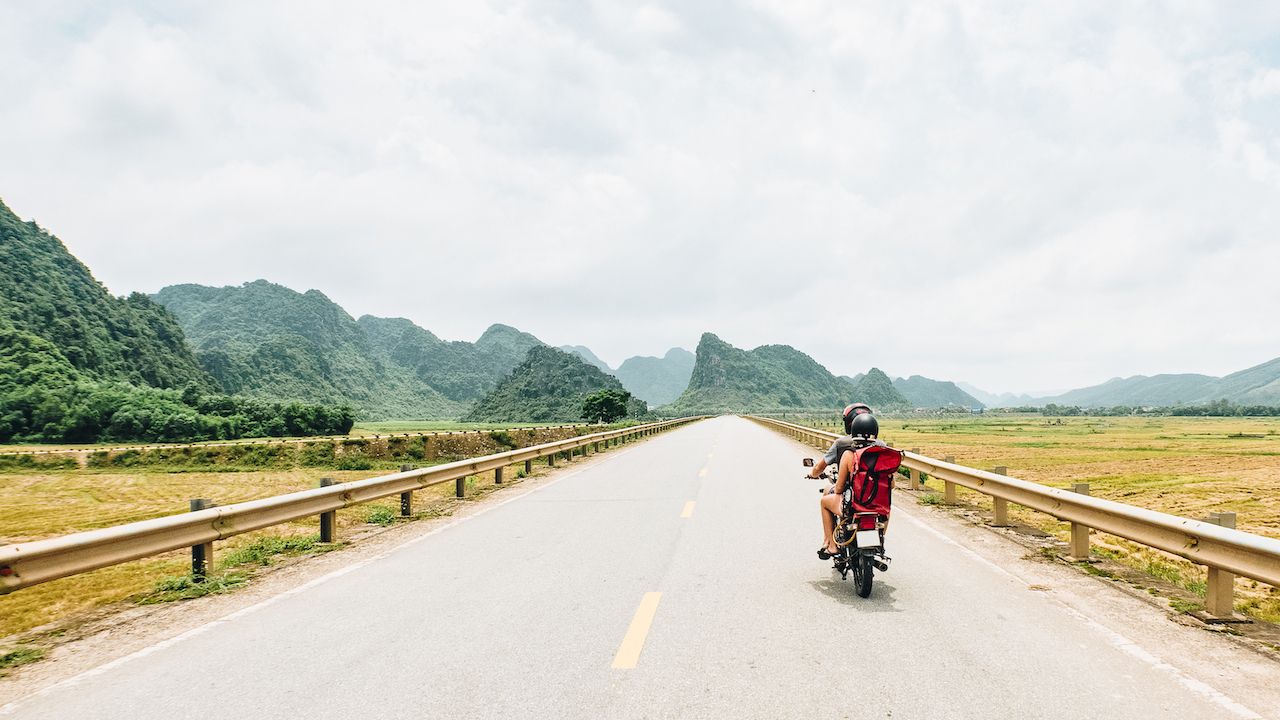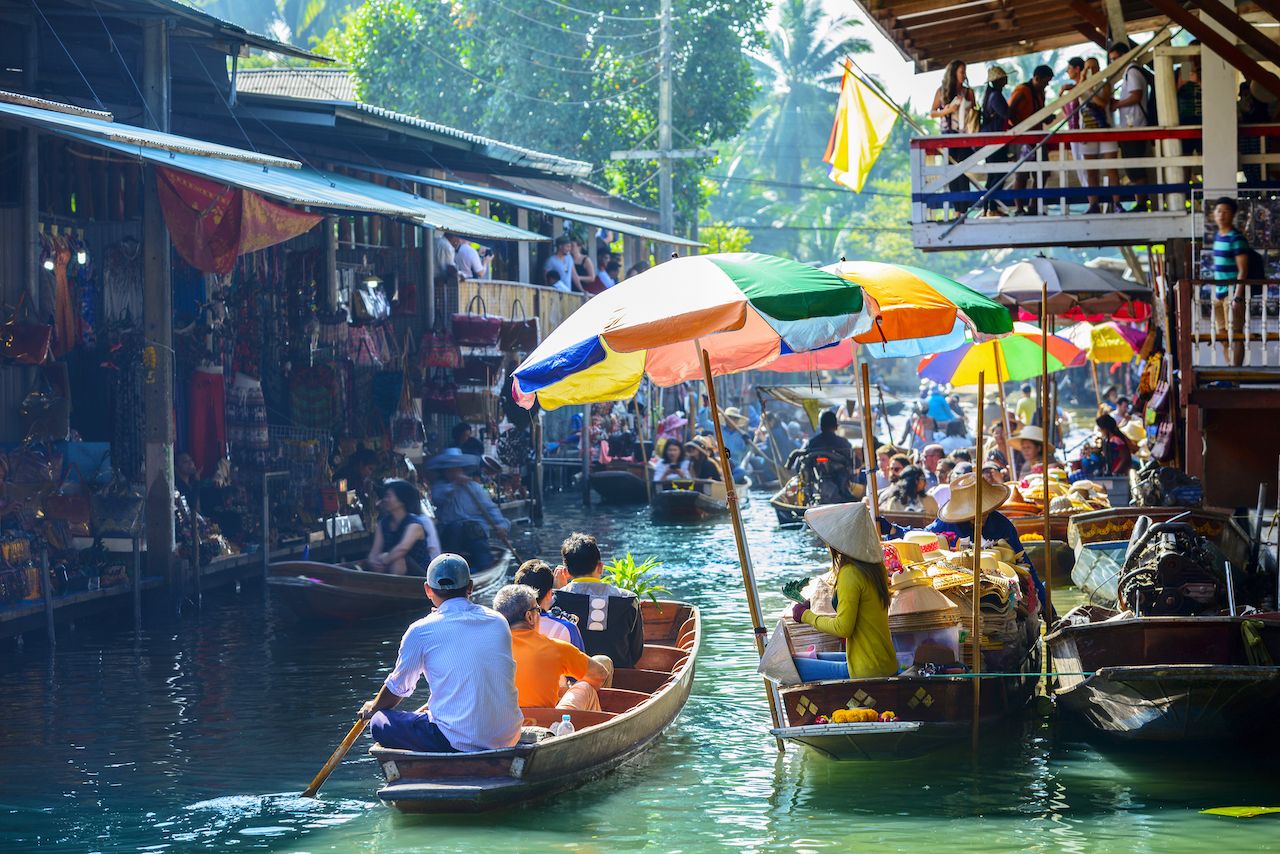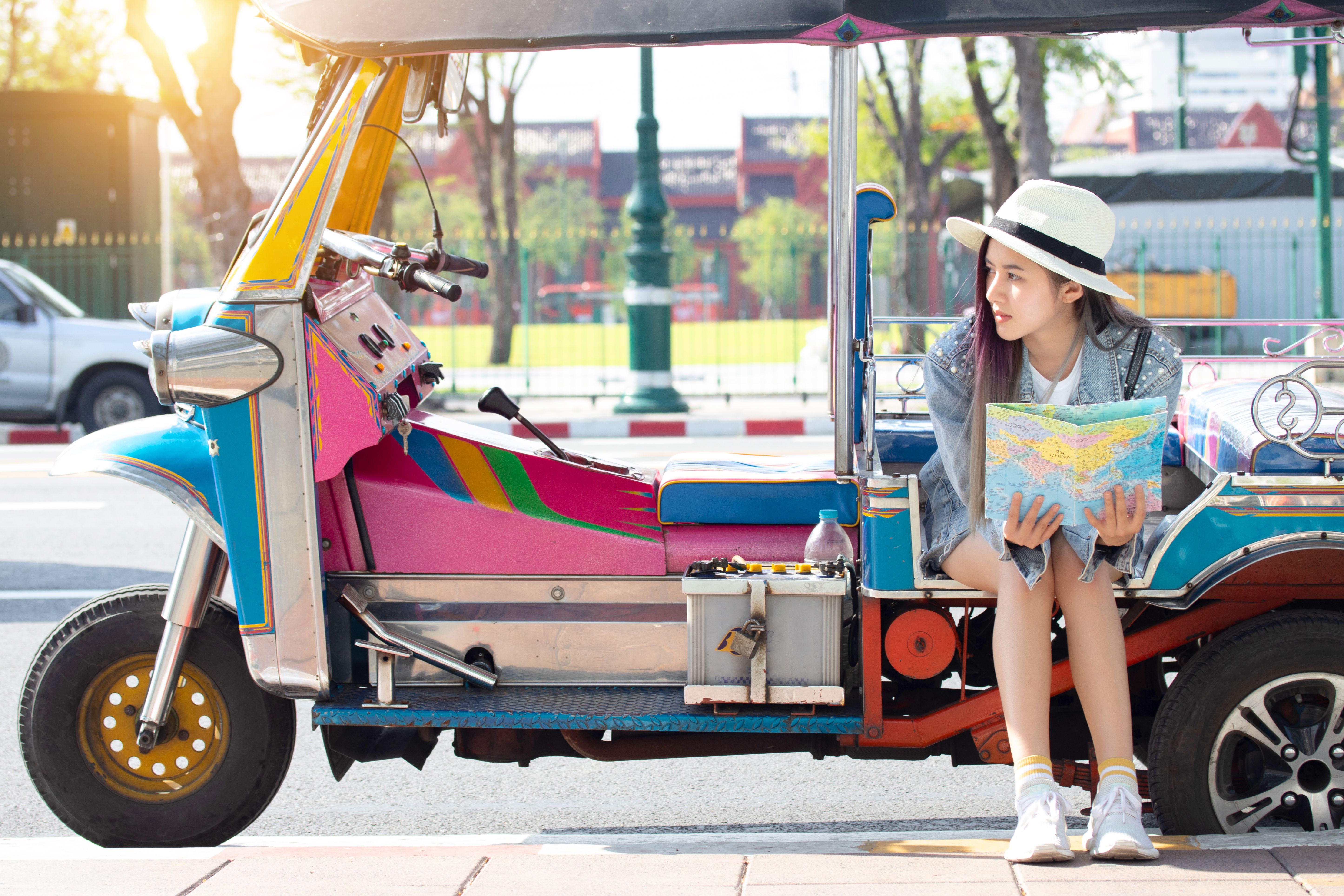Ah, Earth. You big, beautiful globe of infinite experiences. Whether it’s learning how to tandem glacier hike in freezing rain in Norway, how to greet the Himba people with a proper handshake in Namibia, how to cook quinoa 11 different ways in Peru, or how to face your fear of heights by bungee jumping in New Zealand, travel offers a global education that textbooks just can’t. Full stop.
So next time someone gives you grief about booking yet another trip, let them know you’re only doing it for the sake of real-world classroom participation. Which — hey — is probably still cheaper than racking up student loans. Here’s 11 things travel can teach you that school never, ever will.
1. How to really manage your bank account
Ben Franklin knew it. “Beware of little expenses; a small leak will sink a great ship,” he wrote in Poor Richard’s Almanack. And he was quite the traveler.
When you’re at home, it’s easy to fall into bad habits that have you spending a little too much here, a little too much there — an extra treat or two this week at the grocery store, that lamp you just had to get at Target. But travel requires you to pay more attention to inadvertent expenses, so you don’t find yourself stranded in a foreign country having to scrub toilets with a toothbrush in exchange for a place to sleep. Not to mention, you have to come up with novel strategies to save up for that trip in the first place! Take that, Econ 101.
2. That art and history are actually real…

Photo: Shutterstock/Alliance Images
Sure, you can name famous works like The Starry Night and the Mona Lisa, and maybe you can even list interesting facts about more obscure pieces of art and architecture from the days you actually paid attention to your sophomore art history prof.
But once you’re standing in the presence of the Persistence of Memory, exploring the Inca ruins of Machu Picchu, or sitting in the stands of the Theatre of Dionysus, suddenly the past and its masterpieces feel infinitely more vivid than when you’re leafing through a textbook at 2 in the morning, cramming for your midterm. It’s only then that the world truly comes alive.
3. …and that entire other cultures are, too.

Photo: Shutterstock/Nuamfolio
In other words, time to pop that bubble you’ve been living in your whole life. I’d wager the best professor you’ll have in college won’t be able to teach you anywhere near as much about the world (and yourself) as you’ll learn during a month spent on the road, interacting with people from vastly different cultures than your own.
4. How to expect the best while preparing for the worst
While travel teaches you that the world isn’t as scary as the 24-7 news networks lead you to believe, you still should be prepared. Whether it’s investing in something for your room or hotel like a door stop alarm, carrying a self-defense device, or both, it’s always good to pack a little extra safety blanket, just in case.
And since ninja stars and nunchucks are a bit cumbersome to lug around in your pack, the next best thing is definitely SABRE Pepper Gel. Unlike pepper spray, gel pretty much eliminates the chance of wind blowback (so it only hits the person you’re aiming at, and not you), and it can shoot 20% farther than traditional sprays (up to 12 feet). Also, SABRE has a maximum-strength formula and their Pepper Gel contains up to 25 bursts (5x more than other brands), so you can defend yourself from multiple threats.
Do your research and stay smart. After all, travel is all about education — and with that education, everything is far more likely to be smooth sailing.
5. How to improvise without losing your cool

Photo: Shutterstock/Ser Borakovskyy
Van stuck in the desert? No hot water for the week? Spotty internet? Bedbugs? Travel isn’t always pretty. Rather than losing your cool, channel your inner, zenned-out MacGyver to make the most out of the situation. Because, who knows? Maybe your van being stuck will result in a group of Israeli guys inviting you for a cookout, drum circle, and Simon-and-Garfunkel singalong in the desert. Cecilia might shake your confidence, but little else will.
6. How to solve math equations that don’t involve imaginary numbers
I’m not just talking about us Americans having to convert from Celsius to Fahrenheit, kilometers to miles, and meters to feet. At some point, if you’re an avid traveler, you’ll be faced with split-second currency conversions that will test your number skills, especially when hopping through multiple countries on one trip.
Case in point: I once found a yurt in San Pedro de Atacama right after crossing into Chile from Bolivia for about 52,000 Chilean pesos, which we calculated to be $8 US. My friend and I were stoked, especially because the yurt came with clean towels. We even ended up staying two nights because of the price and comfort — and then we found out at checkout that 52,000 Chilean pesos was actually…$80. We got slapped with a pretty big F on our travel math test for that week.
7. How to make friends with someone you can’t even understand

Photo: Shutterstock/Flamingo Images
I spent a week in Colombia with a friend I probably exchanged a total of 20 sentences with. Not only was my Spanish rusty, but he was deaf and could only read lips. Turns out, communication can extend far beyond words, even if it means a lot of awkward smiling, shrugging, and pointing. This is one skill you definitely won’t find in next semester’s course offerings.
8. How to haggle without being a jerk

Photo: Shutterstock/aphotostory
And no, by “haggle” I don’t mean causing a scene because you’d rather pay 25 cents instead of 30 cents for a street pupusa. I mean haggling at a market for a souvenir or maybe trying to get a cheaper rate on a hotel room, a skill that can help you when you potentially — gasp! — settle down and want to land a job. Seriously though, are there truly no college courses on haggling?
9. How to navigate foreign streets like you’re straight out of Baby Driver

Photo: Shutterstock/US 2015
Want to drive like the badass you know you are? Try learning how to manage a stick shift for the first time in the middle of the Australian Outback while dodging a family of emus or having to navigate rush-hour traffic in Bangkok. After that, everything — everything — else involving roads and cars will be a piece of cake.
10. How to stay organized
Unless you enjoy wrinkled clothes, shampoo bottles exploding in your shoes, or loose razors floating around your pack ready to slice a wandering hand, travel will teach you to keep the contents of your bag organized to maintain your sanity.
Travel also teaches you to stay on top of your flight details (so it doesn’t take you an hour to realize your travel partner is actually at the other airport in Buenos Aires), keep track of your immunization records (so you’re not left stranded at some border checkpoint because you can’t prove you got that Yellow Fever shot before you left), and know in the back of your mind how many days it’s been since your mom last heard from you (to avoid her starting a Facebook search group and inviting everyone on your friend list to join).
11. That being embarrassed really isn’t the end of the world

Photo: Im Yanis
When I was younger, people at school thought I was perpetually sunburned. Nope, just perpetually embarrassed. Travel can be awkward, trying, and embarrassing, all rolled up into one uncomfortable ball of uncertainty. You’ll probably order the wrong thing in Thailand and end up with stomach issues the next day while ziplining. You’ll probably get on the wrong bus and find yourself on the wrong side of Amsterdam with no map. You’ll probably go on three wine tours in one day in Argentina and “misplace” your phone.
But who really has time to dwell? Brush yourself off and keep going. After all, it’s all about the learning process.

